Today, President Joe Biden signed the Inflation Reduction Act into law. The new law will help to reduce inflation and lower health care and energy costs for North Dakota families – and does not raise taxes on anyone making less than $400,000 a year
U.S. Senate Candidate Katrina Christiansen remarked, “This will lower energy costs, insulin cost, reduce the deficit, and families who make less than $400,000 won’t pay a penny more in taxes. In fact, the only people who have proposed raising taxes on Americans earning under $400,000 are Senate Republicans through Rick Scott’s terrible plan. Time and time again, Hoeven sides with big pharma and big energy over North Dakotans. The Inflation Reduction Act will fund innovations in energy and manufacturing here on American soil.”
U.S. House Candidate Mark Haugen mentioned, “The Inflation Reduction Act will bring much needed support to working families and seniors, through the ACA insurance subsidy extension, as well capping the out pocket prescription costs, and insulin for our seniors. I am also glad to hear that Medicare can now negotiate prices directly with drug companies.”
Secretary of State Candidate Jeffrey Powell said, “The Inflation Reduction Act represents a historic breakthrough. The American people and the people of North Dakota will undecidedly benefit from the investments in this Act. The immediate effect of the new law is lowering the cost of prescription drugs while addressing price gouging and other supply chain problems. Those who view this from a political lens are more interested in points scoring than in delivering for all of us. Families benefit when we close tax loopholes and ensure the wealthiest corporations pay their fair share, and the IRA does that without raising taxes on any family making less than $400,000. Democrats believe in democracy, in personal and equal rights, and in a government that works for the people. The Inflation Reduction Act delivers!”
“This is a milestone achievement that will bring down prescription costs and improve American’s standard of living during these tough times,” remarked Attorney General Candidate Tim Lamb.
Senator Tim Mathern, a member of the Appropriations Committee, said this is the best medicine to decrease inflation, “finally Congress has passed a bill that reduces the deficit!”
District 4a House Candidate Lisa Finley-Deville said, “The passage of the Inflation Reduction Act is a good first step to battle man-made climate change. In addition, the bill will help everyday people like voters in District 4a by lowering drug prices and the inflationary forces that are impacting pocketbooks.”
“The Democratic leadership has listened to North Dakota. Our seniors will realize a reduction in out-of-pocket expenses, and large corporations will begin to pay a fair tax bill,” emphasized Thomas Passa, candidate for State House in District 20.
Inflation Reduction Act:
- Lowers prescription drug costs by allowing Medicare to negotiate drug prices and capping out-of-pocket costs for seniors to $2,000.
- Lowers energy costs by hundreds of dollars on average for many families, increases cleaner energy production, and reduces carbon emissions by roughly 40 percent in less than 10 years.
- Locks in lower health insurance costs by $800 on average for 13 million Americans who get their insurance through the Affordable Care Act exchanges.
- Fights inflation by reducing the deficit by hundreds of billions.
- Makes big corporations pay their fair share – without raising taxes on families making under $400,000 a year.
- Helps tackle the climate crisis as the most significant legislation in U.S. history to cut pollution, advance environmental justice, and improve American energy security.
- Create good-paying jobs –making solar panels, wind turbines, and electric vehicles across the country.

